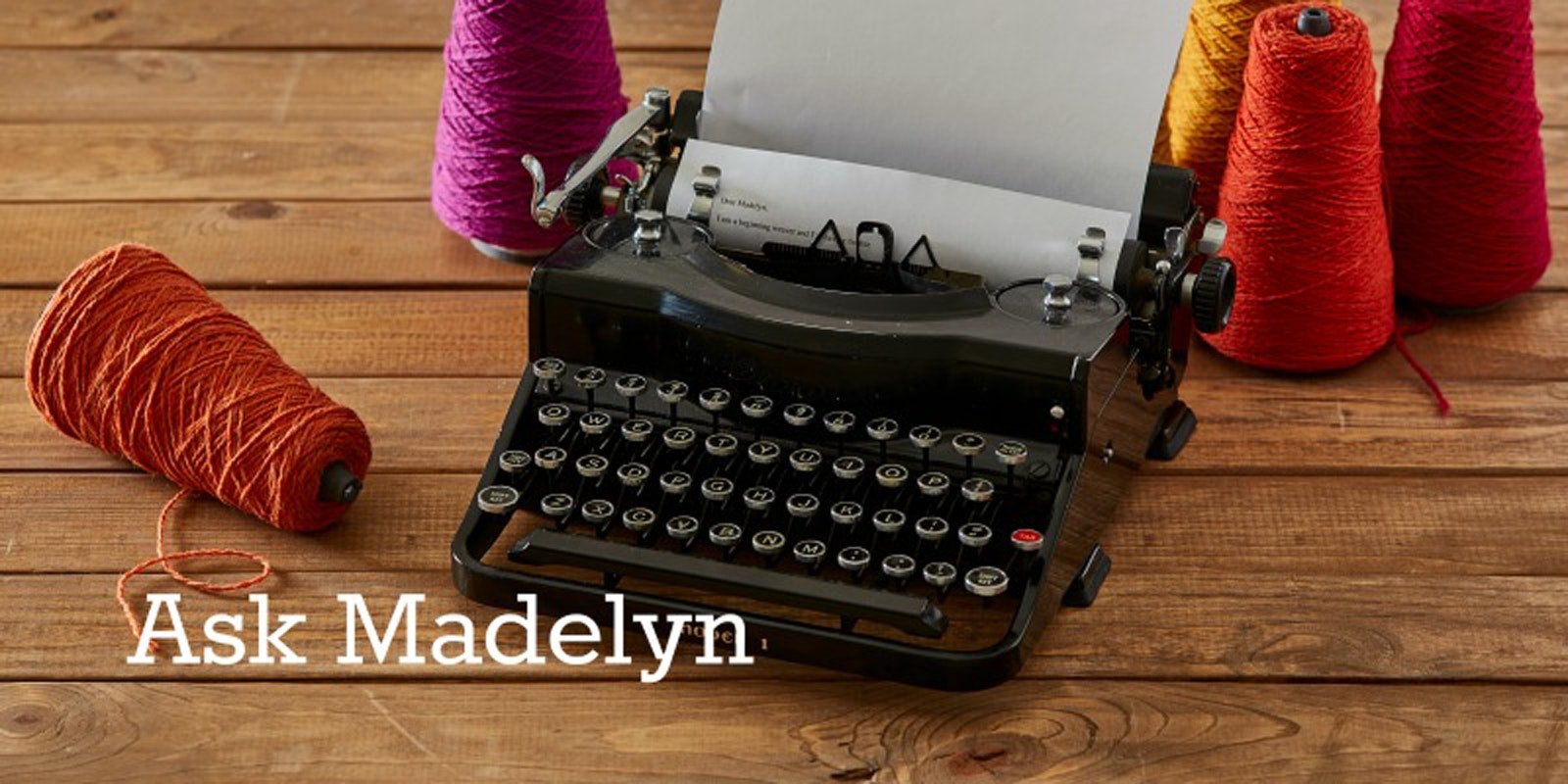Hi Madelyn, I recently saw your video, Weaving Well, where you show how to weave in a stick so you can cut a sample from the loom and then continue weaving without having to retie on to the front apron rod. But in my further reading and research, I found a similar method in which you weave in two sticks. Is one of these weaving techniques a better practice than the other? I am planning on using this idea on my next project.

a. Weaving in the stick
—Greg
Hi Greg!
The process I call “weaving in a stick” requires only one stick. You weave about 2" of firm fabric after you have completed a project on the loom. Then you make a shed (plain weave or as close to it as you can get) and insert a stick of the same thickness as an apron rod. Then you weave an inch or so more of firm fabric (this and the weaving before the stick should also be as close to plain weave as you can get; I usually use a matte weft yarn). Next, you cut off the original project leaving the stick with its 2" of fabric before it and 1" of fabric beyond it and tie that stick to the real apron rod (get some tips for tying stick to apron rod here). Now begin weaving the next project. There wouldn’t be any reason for an additional stick with this weaving technique.

b. Attaching the stick to the apron rod
The only situation I can think of where you would need to use two sticks is if you were planning to change the threading for the next project. In that case, with the original project still on the loom, first make a plain-weave shed (or as close to it as you can get) and insert one stick (of the size and type as a lease stick) into the shed behind the shafts. Then make the other plain-weave shed and insert the second lease stick into the new shed behind the shafts. Secure the lease sticks for threading with cords or other method and cut the woven project from the loom. Then remove the cut warp ends from the heddles and rethread the heddles as usual from the cross on the lease sticks.

c. Lease sticks placed in threading (to be removed when threading is complete)
Photo c shows the lease sticks in place after the threading is completed. The one remaining task to do before you start weaving the next project is to remove the lease sticks. I showed this same photo in a previous Ask Madelyn and someone asked if I intended the lease sticks to remain in place during weaving. Never keep lease sticks behind the shafts when you are weaving. If you do, it effectively shortens your loom by the distance from the back beam to the closest lease stick to the shafts. This seriously affects the opening of the sheds.


